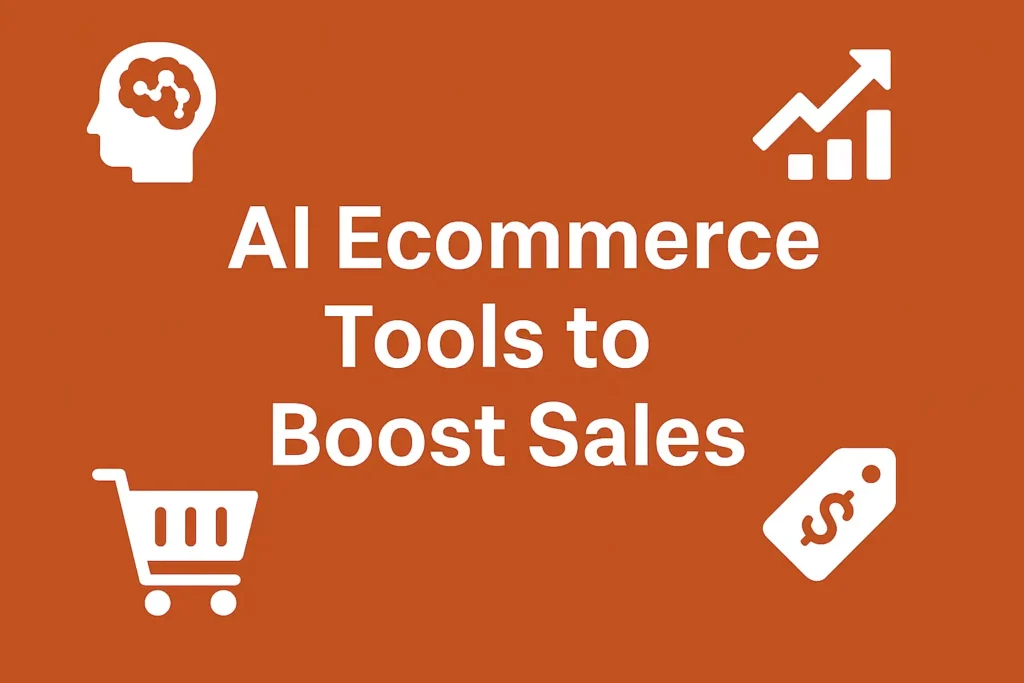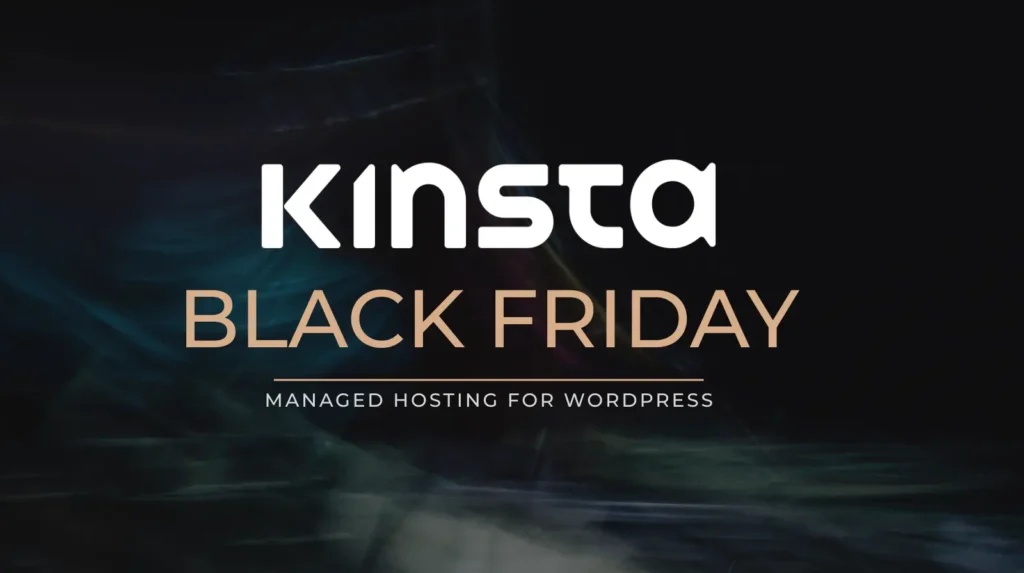In today’s hyper-competitive digital marketplace, running a successful online store requires more than just great products. You need to deliver hyper-personalized shopping experiences, provide instant customer support, and make data-driven decisions at lightning speed. This is where AI ecommerce tools come in.
These powerful solutions are no longer a luxury for large corporations; they are the new engine for growth. From shop automation AI to smart chatbots and predictive analytics, artificial intelligence is fundamentally reshaping how businesses sell online.
This guide explores the best AI ecommerce tools that can give your online store a decisive competitive edge, helping you save time, reduce errors, and drive revenue.
Quick Comparison: Top AI Ecommerce Tools by Function
| Tool | Category | Best For | Key Feature |
| Jasper AI | Marketing & Content | High-converting copy at scale | Brand Voice & campaign templates |
| Shopify Magic | Marketing & Content | Shopify store owners | Integrated product description writer |
| Tidio | Customer Support | SMBs needing an all-in-one chat tool | Lyro AI conversational chatbot |
| Re:amaze | Customer Support | Multichannel support automation | AI-powered helpdesk & workflows |
| Clerk.io | Personalization | Driving sales with recommendations | AI-powered search & product feeds |
| Optimizely | Personalization | Data-driven conversion optimization | AI-powered A/B testing |
| Syte | Personalization | Fashion & home decor brands | Visual AI search and discovery |
Why Your Ecommerce Store Needs AI Today
Modern shoppers expect seamless, intuitive, and personalized interactions. They want smart recommendations, 24/7 support, and a shopping journey that feels tailored specifically to them. In fact, 75% of consumers are more likely to buy from a retailer that recognizes them by name and recommends products based on past purchases.
AI solves this by automating complex tasks and analyzing data far more effectively than any human team could. Here’s how:
- Personalized Product Recommendations: AI algorithms analyze browsing history, past purchases, and real-time behavior to surface products each individual customer is most likely to buy, significantly increasing Average Order Value (AOV).
- 24/7 Customer Support: AI chatbots instantly handle common queries about order status, shipping policies, and product details, freeing up human agents for more complex issues.
- Intelligent Inventory Management: Predictive AI forecasts demand based on historical data and market trends, helping you avoid costly stockouts or overstocking.
- Dynamic Pricing & Fraud Prevention: AI can adjust prices in real time to stay competitive and identify suspicious transaction patterns to prevent fraud before it happens.
AI Tools for Marketing & Content Creation
These tools use generative AI to help you create compelling copy and content that converts.
1. Jasper AI: Best for High-Converting Marketing Copy
Jasper is a market-leading AI writing assistant built specifically for creating high-performance marketing and sales copy. It uses advanced models to generate everything from ad copy and product descriptions to entire blog posts, all while maintaining your specific brand voice.
Key Features:
- Brand Voice: Train Jasper on your style guides and existing content to ensure consistency.
- Campaign Templates: Pre-built templates for creating coordinated assets across email, social media, and ads.
- SEO Optimization: Integrates with tools like SurferSEO to help your content rank higher.
Our Expert Take: While ChatGPT is a great generalist, Jasper is a specialist. Its focus on marketing frameworks and conversion-focused templates makes it a superior choice for e-commerce teams who need to generate revenue-driving content quickly and consistently.
- Best For: E-commerce marketers, copywriters, and agencies needing to produce high-quality content at scale.
- Pricing: Starts at $39/month (billed annually).
2. Shopify Magic: Best for Native Shop Automation AI
Shopify Magic is a suite of free AI tools built directly into the Shopify platform. Its primary strength is its seamless integration, allowing store owners to generate product descriptions, email subject lines, and other text without needing a third-party app.
Key Features:
- AI-Generated Product Descriptions: Create compelling descriptions instantly by entering a few keywords and features.
- Personalized Email Marketing: Generates subject lines and body copy for email campaigns within Shopify Email.
- Sidekick: An AI-powered commerce assistant that helps with store analysis and operational tasks.
Our Expert Take: Shopify Magic is incredibly convenient for store owners already on the platform. While its outputs may not be as nuanced as a specialized tool like Jasper, it’s an invaluable free resource for quickly populating product pages and overcoming writer’s block.
- Best For: Shopify store owners who want a simple, integrated AI solution for content generation.
- Pricing: Free for all Shopify users.
3. ChatGPT: The Versatile Content & Support Assistant
ChatGPT is the powerful, all-purpose language model from OpenAI. For e-commerce, it can be used for a massive range of tasks, from brainstorming marketing campaigns and writing blog posts to drafting customer support responses and creating social media captions.
Key Features:
- Content Generation: Draft product descriptions, FAQs, and marketing emails.
- Customer Query Simulation: Help train your support team by role-playing customer scenarios.
- API Integration: Can be integrated into custom chatbots and support tools.
Our Expert Take: Think of ChatGPT as a brilliant intern. It’s incredibly versatile but requires clear instructions and oversight. It’s best used for drafting and idea generation, with a human editor refining the final output to ensure it aligns perfectly with your brand.
- Best For: Teams needing a flexible AI tool for a wide variety of text-based tasks.
- Pricing: Free version available; Plus plan starts at $20/month.
AI Tools for Customer Support
These tools use AI to automate communication, resolve issues faster, and improve customer satisfaction.
4. Tidio: Best All-in-One AI Chatbot for SMBs
Tidio offers a suite of customer communication tools centered around its AI chatbot, Lyro. It’s designed to be incredibly user-friendly, allowing store owners to deploy a sophisticated chatbot that can answer up to 70% of customer questions without human intervention.
Key Features:
- Lyro AI Chatbot: A conversational AI that learns from your FAQ data to provide instant, accurate answers.
- Live Chat & Ticketing: Seamlessly combines AI and human support in one inbox.
- Proactive Engagement: Triggers automated messages to recover abandoned carts or greet new visitors.
- Deep Integrations: Works flawlessly with Shopify, WooCommerce, and BigCommerce.
Our Expert Take: Tidio hits the sweet spot between power and simplicity. Lyro is one of the most capable and easy-to-implement e-commerce chatbots on the market, making it perfect for small to medium-sized businesses looking to provide 24/7 support without a large team.
- Best For: Small and medium-sized e-commerce stores wanting to automate support and increase conversions.
- Pricing: Free plan available; paid plans start at $29/month.
5. Re:amaze: Best for Multichannel Support Automation
Acquired by GoDaddy, Re:amaze is a powerful helpdesk and live chat platform designed specifically for e-commerce. It uses AI to automate workflows and unify customer conversations from email, live chat, social media, and SMS into a single shared inbox.
Key Features:
- AI-Powered Chatbots (“Cues”): Automate responses, tag conversations, and route tickets to the right agent.
- Shared Inbox: Manage all customer communications from every channel in one place.
- Status Pages: Proactively inform customers about shipping delays or site issues.
Our Expert Take: Re:amaze is built for scaling support teams. While Tidio is excellent for front-end engagement, Re:amaze excels at managing the entire backend support operation with intelligent automation and deep integrations.
- Best For: Growing e-commerce businesses that need a robust, multichannel helpdesk with powerful automation.
- Pricing: Starts at $29/user/month.
AI Tools for Personalization & Optimization
These tools use predictive and analytical AI to tailor the shopping experience and optimize your store for higher conversions.
6. Clerk.io: Best for AI-Powered Search & Recommendations
Clerk.io is a leading personalization engine that uses AI to understand customer intent in real time. It enhances your store’s search functionality, product recommendations, and email marketing to show every customer the products they are most likely to buy.
Key Features:
- Intelligent Search: Provides highly relevant, personalized search results that handle typos and synonyms.
- Behavior-Based Recommendations: Shows dynamic product recommendations on homepages, product pages, and checkout.
- Email Personalization: Automatically populates marketing emails with products tailored to each recipient.
Our Expert Take: Clerk.io is a revenue-driving machine. By replacing your theme’s default search and recommendation blocks with Clerk’s AI, you can see an immediate uplift in AOV and conversion rates. It’s a must-have for stores with large product catalogs.
- Best For: Mid-to-large e-commerce stores focused on increasing average order value and customer lifetime value.
- Pricing: Starts around $99/month, based on usage.
7. Syte: Best for Visual AI Search & Discovery
Syte is a product discovery platform that uses visual AI to change how customers find products. It allows shoppers to upload an image or use their camera to search for visually similar items in your inventory, which is a game-changer for fashion, home decor, and jewelry brands.
Key Features:
- Camera Search: Shoppers can “snap and search” for products using their phone’s camera.
- Visual Recommendations: Displays visually similar items on product pages.
- “Shop the Look”: Makes items in inspirational photos and user-generated content shoppable.
Our Expert Take: Syte creates a “discovery” experience that mimics how people find inspiration on platforms like Pinterest and Instagram. For visually driven industries, this is far more intuitive and effective than traditional text-based search.
- Best For: Fashion, home decor, and jewelry e-commerce stores.
- Pricing: Custom pricing based on traffic and usage.
8. Optimizely: Best for AI-Powered A/B Testing
Optimizely is an enterprise-level digital experience platform that uses AI to run smarter experiments. Instead of traditional A/B testing, its AI can test multiple variations of a page simultaneously and automatically allocate more traffic to the best-performing versions.
Key Features:
- AI-Powered Experimentation: Test headlines, images, and layouts to find the optimal combination for conversions.
- Personalized Experiences: Deliver different website experiences to different audience segments in real time.
- Full-Stack Platform: Optimize experiences across web, mobile apps, and server-side applications.
Our Expert Take: Optimizely is the tool for serious, data-driven optimization. It’s an enterprise-grade solution that’s perfect for high-traffic stores looking to squeeze every last percentage point out of their conversion rate.
- Best For: Large-scale e-commerce businesses with dedicated optimization and marketing teams.
- Pricing: Enterprise-level; requires a custom quote.
9. Persado: Best for Emotion-Aware Marketing Copy
Persado uses a unique combination of generative AI and a massive database of emotional language to craft marketing messages that resonate with customers. It goes beyond just creating text; it determines the right emotional tone to drive action.
Key Features:
- Emotion-Based Language: Generates copy designed to evoke specific emotions like excitement, safety, or achievement.
- Predictive Performance: Forecasts how different message variations will perform before you send them.
- Cross-Channel Consistency: Creates cohesive, emotionally targeted messages for email, ads, and SMS.
Our Expert Take: Persado offers a fascinating, data-backed approach to copywriting. For large brands with massive email lists, optimizing for emotional response can lead to significant uplifts in engagement and conversions.
- Best For: Enterprise B2C brands with large marketing programs.
- Pricing: Enterprise-level; requires a custom quote.
10. MonkeyLearn: Best for Customer Feedback Analysis
Acquired by Medallia, MonkeyLearn is a text analysis platform that uses AI to understand customer feedback at scale. It can automatically analyze thousands of product reviews, support tickets, and survey responses to identify sentiment and recurring themes.
Key Features:
- Sentiment Analysis: Automatically categorizes text as positive, negative, or neutral.
- Keyword & Topic Extraction: Identifies the key topics customers are talking about.
- No-Code Interface: Build and train custom text analysis models without writing code.
Our Expert Take: MonkeyLearn helps you find the “why” behind your data. Instead of manually reading reviews, you can use AI to instantly see that customers love your product’s design but are frustrated with its battery life, allowing you to make smarter business decisions.
- Best For: Product and support teams who need to analyze large volumes of qualitative customer feedback.
- Pricing: Custom pricing.
How to Choose the Right AI Tools for Your Store
- Identify Your Biggest Bottleneck. Where are you losing the most time or money? Is it customer support, content creation, or low conversion rates? Start by solving your most pressing problem.
- Prioritize Seamless Integration. Choose tools that have native integrations with your e-commerce platform (e.g., Shopify, BigCommerce) and other essential software. This prevents data silos and technical headaches.
- Start with a Clear ROI. Most tools offer a free trial or demo. Use this period to assess its impact. Does the chatbot save your support team 10 hours a week? Did the recommendation engine increase AOV by 5%? Measure the results.
- Focus on Usability. A powerful tool is useless if your team can’t figure out how to use it. Look for intuitive interfaces, good documentation, and responsive customer support.
Conclusion: The Future is an AI-Powered Store
AI is no longer a futuristic buzzword; it is the operational backbone of modern e-commerce. By automating backend operations, personalizing the customer journey, and providing deep analytical insights, AI tools empower you to build a smarter, more efficient, and more profitable online business.
Whether you’re just starting or scaling an established brand, now is the time to integrate shop automation AI into your strategy. Choose the tools that align with your goals, and you’ll be well-equipped to meet the demands of today’s shoppers and stay ahead of the competition.








